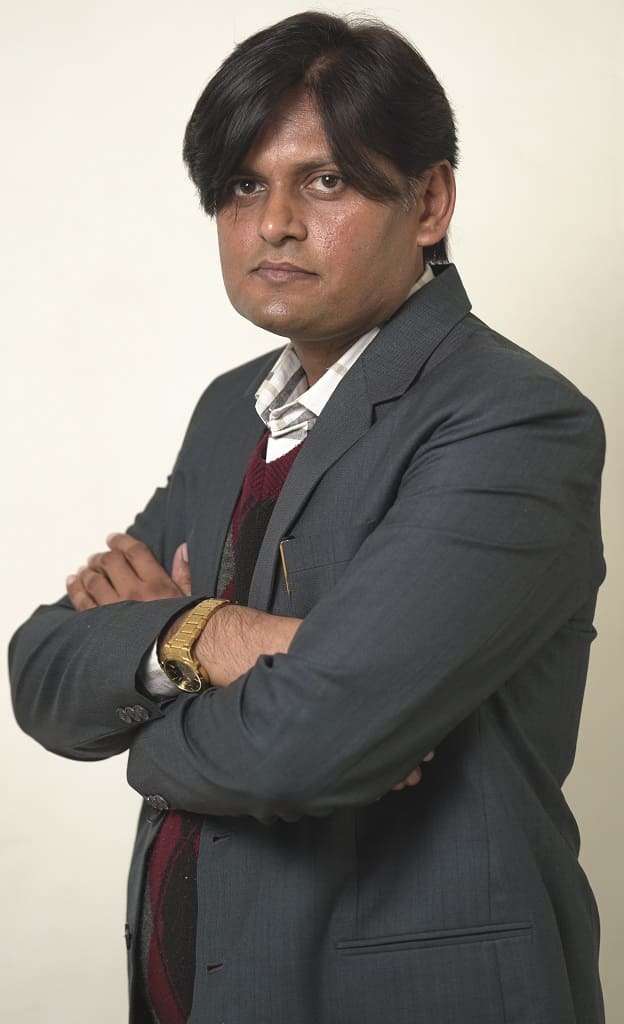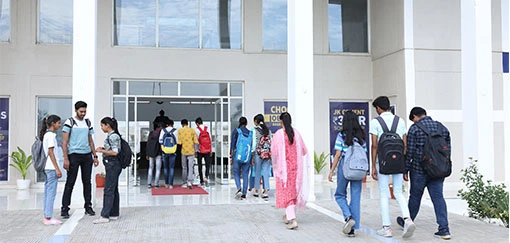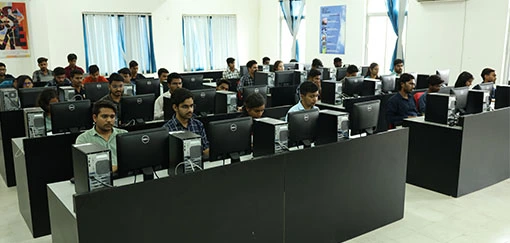About B.Tech in E&CE
Specialization Offered
-
Embedded Systems & VLSI with

- Internet of Things (IOT)
- Robotics
Curriculum
| Course Code | Course Title |
|---|---|
| Major Core | |
| CSE2108 | C Programming |
| MAE2101 | Engineering Mathematics -I |
| Value Added Courses | |
| XXXXXXX | Value Added Course – I |
| Ability Enhancement Courses | |
| XXXXXXX | Ability Enhancement Course – I |
| Multidisciplinary Courses | |
| XXXXXXX | Multidisciplinary Course – I |
| Minor Course | |
| XXXXXXX | Minor Course – I |
| Course Code | Course Title |
|---|---|
| Major Core | |
| CSE2211 | Object Oriented Programming |
| ECE2202 | Basic Electrical and Electronics Engineering |
| MAE2201 | Engineering Mathematics -II |
| Skill Enhancement Courses | |
| XXXXXXX | Skill Enhancement Course – I |
| Multidisciplinary Courses | |
| XXXXXXX | Multidisciplinary Course – II |
| Ability Enhancement Courses | |
| XXXXXXX | Ability Enhancement Course – II |
| Minor Course | |
| XXXXXXX | Minor Course – II |
| Course Code | Course Title |
|---|---|
| Major Core | |
| ECE2307 | Electronic Devices & Circuits – I |
| ECE2308 | Electronic Devices & Circuits Lab – I |
| ECE2303 | Digital System Design |
| ECE2304 | Digital System Design Lab |
| ECE2305 | Network Analysis |
| ECE2306 | Engineering Electromagnetics |
| Skill Enhancement Courses | |
| XXXXXXX | Skill Enhancement Course – II |
| Ability Enhancement Courses | |
| XXXXXXX | Ability Enhancement Course – III |
| Minor Course | |
| XXXXXXX | Minor Course – III |
| Course Code | Course Title |
|---|---|
| Major Core | |
| ECE2407 | Electronic Devices & Circuits – II |
| ECE2408 | Electronic Devices & Circuits Lab – II |
| ECE2401 | Computer based numerical methods |
| ECE2402 | Computer based numerical methods Lab |
| ECE2403 | Microprocessors & Microcontrollers |
| ECE2404 | Microprocessors & Microcontrollers Lab |
| ECE2405 | Communication System |
| ECE2406 | Communication System Lab |
| Ability Enhancement Courses | |
| XXXXXXX | Ability Enhancement Course – IV |
| Minor Course | |
| XXXXXXX | Minor Course – IV |
| Course Code | Course Title |
|---|---|
| Major Core | |
| ECE2501 | Embedded System Design |
| ECE2502 | Embedded System Design Lab |
| ECE2503 | Signals & Systems |
| ECE2504 | VLSI Design |
| ECE2505 | VLSI Design Lab |
| Multidisciplinary Courses | |
| XXXXXXX | Multidisciplinary Course – III |
| Value Added Course | |
| XXXXXXX | Value Added Course – II |
| Ability Enhancement Courses | |
| Ability Enhancement Course – V | |
| Minor Course | |
| XXXXXXX | Minor Course – V |
| Course Code | Course Title |
|---|---|
| Major Core | |
| ECE2601 | Digital Signal Processing |
| ECE2602 | Digital Signal Processing Lab |
| ECE2603 | Control System Engineering |
| ECE2606 | Advanced Programming |
| ECE2607 | Advanced Programming Lab |
| ECEXXXX | Departmental Elective – I |
| Skill Enhancement Courses | |
| XXXXXXX | Skill Enhancement – III |
| Minor Course | |
| XXXXXXX | Minor Course – VI |
| Course Code | Course Title |
|---|---|
| Major Core | |
| ECEXXXX | Departmental Elective – II |
| ECEXXXX | Departmental Elective – III |
| Project/Internship/Workshop/ Vocational Training | |
| ECE2784 | Summer Internship |
| ECE2781 | Project |
| Minor Course | |
| XXXXXXX | Minor Course – VI |
| XXXXXXX | Minor Course – VII |
| Course Code | Course Title |
|---|---|
| Research Project/Dissertation/Industrial Training | |
| ECE2883 | Research Project |
PSOs
Pathway After
B.Tech In Electronics and Communication Engg
Careers
Top Recruiters
- J K Cements
- Qualcomm Communcation
- Apple
- Cognizant
- T C S
- Accenture
- IBM
- SYNOPSIS, E - InfoChip Etc.
Dr. Anand A. Bhaskar
HoD Message
Welcome to the Department of Electronics and Communication Engineering at Sir Padampat Singhania University, Udaipur. The department was established in 2007 with a state of art facilities and highly qualified faculty. The department works with the goal of addressing critical challenges faced by the Industry, society and the academia. Perhaps even more important is our unceasing commitment to our students, helping them to learn, grow, develop, and achieve their goals in their pursuit to excel in their professional career.
Department of Electronics and Communication Engineering is one of the oldest departments in the School of Engineering in Sir Padampat Singhania University, offering undergraduate, postgraduate, and doctoral programmes in the key areas like Internet of Things (IoT), Embedded System and VLSI.
The department faculties work with excellent team spirit in different technical fields like IoT, VLSI, Embedded System, Wireless Sensor Network, Communications which leads to key research publications, research projects and consultancy in these areas. The department strives to provide learning by doing environment for students to develop analytical and practical skills and apply them to real world problems. The department has strong rapport with core Industries and students are having good placement record.
I am confident that the students of the department would justify the credibility of the department by showing a high level of professional competence in their respective field. Department welcome you all as undergraduate or post graduate or research student and hope to be part of your success journey.

Why B.Tech In Electronics and Communication From SPSU

Collaboration with industries like Ecosol (for Solar Cell controlled E – Cycles & E – Bike), Omnipresent Robotics, Beumer Group, Daikin and JK Cement to enable all the students of ECE Department to be industry read

State of Art infrastructure in Laboratories. Advanced labs on Internet of Things, Robotics, Embedded Systems with 3D Printer facilities along with high end computational and executional labs for VLSI, DSP, RF

Favorable, Innovative Research opportunities for undergraduate and post graduate students, Having profound contributions in the prototype manufacture section of Entrepreneurship Cell
Our Alumni Working with Fortune
500 Companies



























B.Tech In Electronics and Communication Eligibility
Criteria & Selection Process

Eligibility & Fee
B.Tech In Electronics and Communication
Fee Per Annum

Selection
B.Tech In Electronics and Communication
Scholarship
worth ₹22Cr
- Additional 5% for wards of defence & para-military personnel
- Additional 5% for girl child
- Additional 5% for state, national & international sports players
- Additional 5% for JK employees wards only
- Additional 5% siblings of existing students or alumni (blood relation only)
- Additional 5% for MBA applicants with CAT & XAT percentile of over 85, or GMAT score of above 650
- Additional 5% for M.Tech. applicants qualifying GATE


